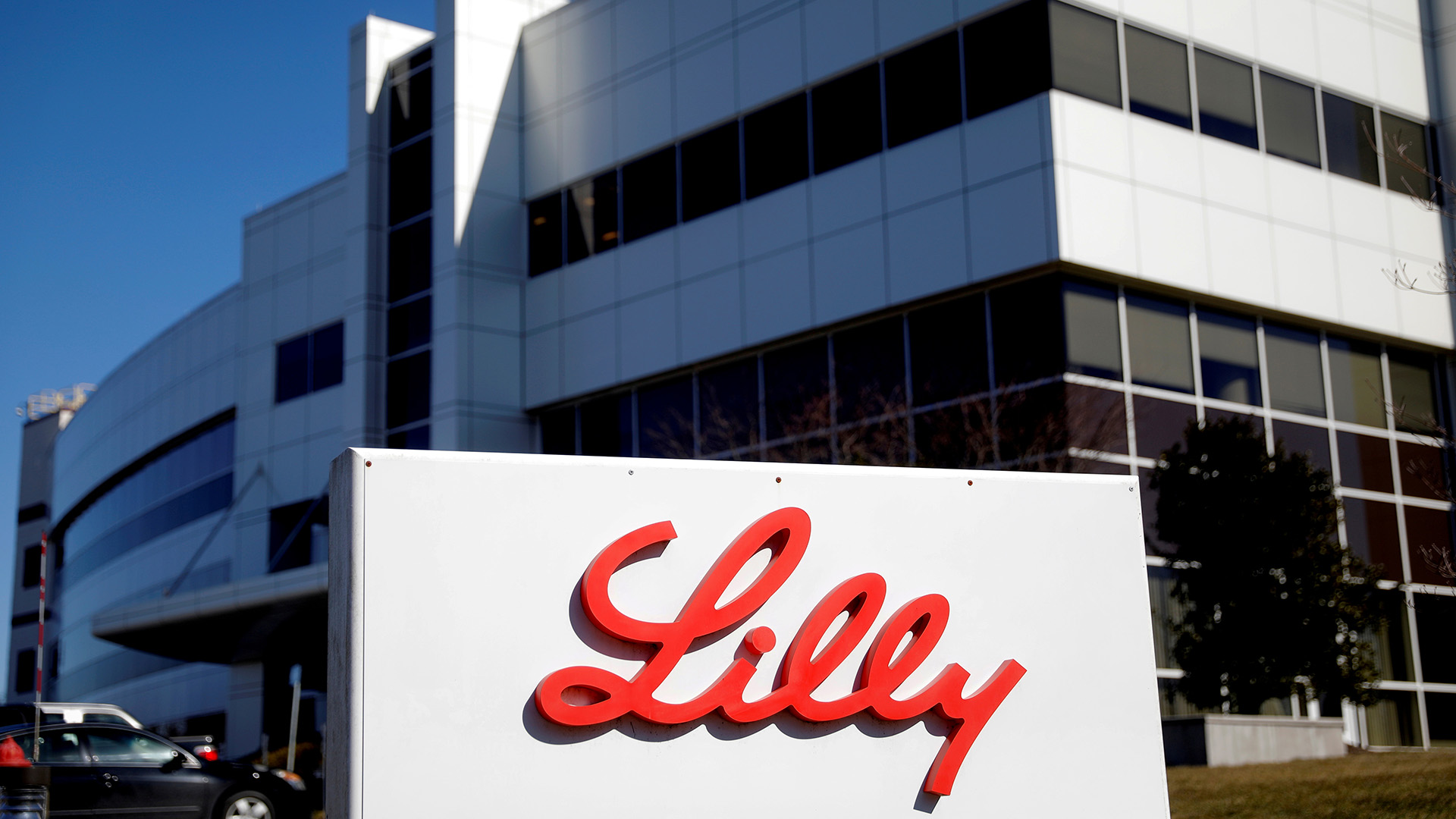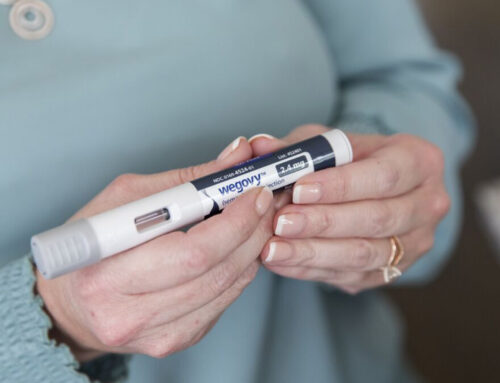- Eli Lilly’s Tirzepatide Receives FDA Approval for Weight Loss, Expanding Access to the Popular Medication
- The Drug’s Core Component, Tirzepatide, Previously Approved for Type 2 Diabetes Treatment as Mounjaro Since May 2022
- FDA’s Recent Approval Allows Zepbound, Formerly Tirzepatide, to be Utilized by Adults with Obesity or Overweight Conditions and Weight-Related Issues for Long-Term Weight Management
The Food and Drug Administration granted approval to Eli Lilly’s popular drug tirzepatide for weight loss on Wednesday, opening the door for broader utilization of the treatment in the United States.
Tirzepatide, the active ingredient in the drug, had previously received approval for Type 2 diabetes treatment under the name Mounjaro in May 2022. With the latest FDA approval, adults dealing with obesity or overweight conditions, along with at least one weight-related issue, can now use the drug—branded as Zepbound—for chronic weight management.
Anticipated to be available in the U.S. by the year’s end, Zepbound is set to be priced at approximately $1,060 for a month’s supply, as per Eli Lilly’s release.
Prior to this approval, many patients had been using tirzepatide off-label for weight loss, contributing to a surge in demand for weight-loss treatments, including Novo Nordisk’s Wegovy and Ozempic. All three drugs have been grappling with supply constraints due to heightened demand.
This weight loss approval further solidifies Eli Lilly as a substantial contender against Novo Nordisk in the emerging obesity drug market. Analysts predict this market could reach $100 billion by 2030. While the increased use of these drugs prompts questions about their impact on various industries, it remains too early to gauge their widespread adoption.
The approval coincides with a global estimate of 650 million adults affected by obesity, with roughly 40% of the U.S. adult population grappling with this issue. Dr. John Sharretts, director of the division of diabetes, lipid disorders, and obesity in the FDA’s Center for Drug Evaluation and Research, emphasized the approval’s significance in addressing the escalating rates of obesity and overweight conditions in the United States, recognizing them as serious health concerns associated with leading causes of death like heart disease, stroke, and diabetes.
Assessing the Effectiveness of Zepbound: A Closer Look at its Performance
Zepbound is administered via a weekly injection, and its dosage is gradually increased over a period of four to 20 weeks to reach the target doses of 5, 10, or 15 milligrams per week.
The drug’s mechanism involves activating two naturally occurring hormones in the body: glucagon-like peptide-1 (GLP-1) and glucose-dependent insulinotropic polypeptide (GIP). This combination is designed to slow stomach emptying, extending the feeling of fullness and reducing appetite by decelerating hunger signals in the brain.
The FDA’s approval was based on two late-stage trials conducted by Eli Lilly on tirzepatide, assessing its impact on weight loss over a 72-week period. In a study involving over 2,500 adults with obesity but without diabetes, those receiving a 5-milligram dose of tirzepatide for 72 weeks experienced an average weight loss of about 16%. Higher doses of the drug resulted in even greater weight loss, with a 15-milligram dose leading to an average loss of 22.5%.
Another late-stage study focused on individuals who were obese or overweight and had Type 2 diabetes, revealing that tirzepatide induced weight loss of up to 15.7%.
Examining Pricing and Addressing Supply Constraints: Considerations for Zepbound
However, gaining access to tirzepatide and other treatments for diabetes and obesity remains a significant challenge.
Tirzepatide’s list price for weight loss is $1,059.87 per month across six different dose sizes, approximately 20% lower than Wegovy, according to Eli Lilly’s press release. The company highlighted that the out-of-pocket expenses for patients with insurance are likely to be lower. Additionally, Eli Lilly is introducing a commercial savings card program for Zepbound, aiming to enhance access. This program could enable individuals with insurance coverage for Zepbound to pay as little as $25 for a one-month or three-month prescription. For those without insurance coverage, the cost may be as low as $550 for these prescriptions.
Mike Mason, Executive Vice President and President of Eli Lilly Diabetes and Obesity, emphasized the company’s commitment to collaborating with healthcare, government, and industry partners to ensure broader access to Zepbound.
A broader issue arises from many insurance companies excluding weight loss drugs from their plans, citing the high costs associated with covering these medications. Some insurers express the need for additional data demonstrating the health benefits of these drugs beyond weight loss. Recent preliminary data from a late-stage trial on Novo Nordisk’s weight loss drug Wegovy indicated a 20% reduction in the risk of cardiovascular events such as heart attacks and strokes. These findings suggest potential long-term cardiovascular benefits for Wegovy and similar drugs like Mounjaro.
The future supply of Zepbound remains uncertain, considering the widespread shortages of Mounjaro in the U.S. Eli Lilly’s CEO, David Ricks, assured reporters on Wednesday that the company is fully prepared to launch Zepbound, with sufficient supply. He also mentioned that all doses of Mounjaro are currently listed as available on the FDA’s drug shortage website. Eli Lilly is actively working to increase production capacity for tirzepatide to meet the demands of individuals dealing with obesity. Ricks expressed the company’s readiness for a substantial launch towards the end of the year and its commitment to expanding supply capacity.
Understanding Potential Side Effects of Zepbound
Similar to other weight loss drugs, Zepbound is linked to side effects outlined in the FDA’s approval label, including nausea, diarrhea, vomiting, constipation, abdominal discomfort and pain, fatigue, and allergic reactions.
The FDA also mentioned that Zepbound induces thyroid C-cell tumors in rats, but it remains uncertain whether the drug has a similar effect in humans. Individuals with a personal or family history of medullary thyroid cancer or those with Multiple Endocrine Neoplasia syndrome type 2 are advised against using Zepbound.
The FDA further cautions against combining Zepbound with Mounjaro or another weight loss or diabetes drug targeting GLP-1, as the safety and effectiveness of coadministration have not been established.
Additional warnings from the FDA regarding Zepbound include the potential for inflammation of the pancreas, gallbladder problems, acute kidney injury, and the possibility of suicidal behavior or thinking. Dr. Leonard Glass, Eli Lilly’s Senior Vice President of Global Medical Affairs for Diabetes and Obesity, highlighted the importance of monitoring individuals for any side effects, especially given the historical association of anti-obesity medications with suicidal ideation. He encouraged individuals to promptly seek medical attention for monitoring and management of potential side effects.
Credited Source: CNBC





